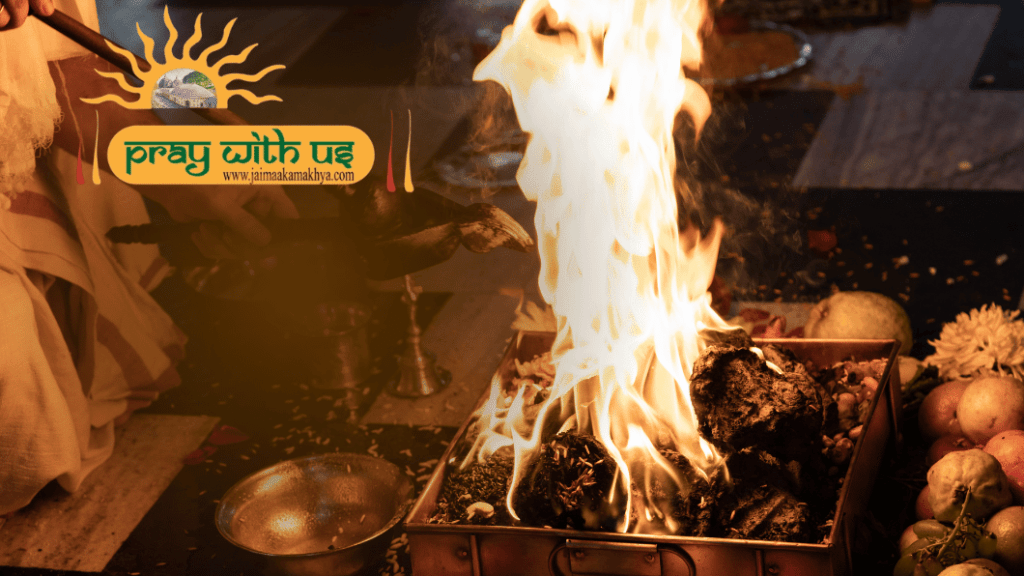The Hindu religion is known for its rich and diverse customs and traditions, many of which have been passed down for centuries. One of the most fascinating aspects of Hinduism is its ancient Vedic rituals, which are still practiced by millions of people around the world today.
In this article, we will delve into the world of Vedic rituals, exploring their origins, significance, and how they are still relevant in modern times.
What are Vedic rituals?
Vedic rituals are a set of religious practices that originated in ancient India and are based on the Vedas, the oldest sacred texts of Hinduism. These rituals are believed to have been passed down by the gods to the sages, who then passed them on to their disciples.
The Vedas contain a vast collection of hymns, prayers, and rituals that are meant to be performed by individuals or groups to connect with the divine and seek blessings for various purposes. These rituals are considered to be a way to maintain harmony and balance in the universe and to bring prosperity and well-being to those who perform them.
The significance of Vedic rituals

Vedic rituals hold great significance in Hinduism as they are believed to have the power to bring about positive changes in one’s life. They are also seen as a way to express gratitude and devotion to the gods and to seek their blessings for a happy and prosperous life.
These rituals are also believed to have a purifying effect on the mind, body, and soul, and are often performed to seek forgiveness for past wrongdoings and to start afresh with a clean slate.
Types of Vedic rituals
There are various types of Vedic rituals, each with its own unique purpose and significance. Some of the most commonly performed Vedic rituals include:
Yajna
Yajna, also known as Homa or Agnihotra, is a fire ritual that involves making offerings to the gods through the sacred fire. This ritual is believed to purify the atmosphere and bring about positive energy and blessings from the gods.
The fire is considered to be a symbol of purity and transformation, and the offerings made to it are believed to be carried to the gods, who then bestow their blessings upon the devotees.
Puja
Puja is a ritual of worship that involves offering prayers, flowers, fruits, and other offerings to the gods and goddesses. It is usually performed in front of a deity’s idol or image, and is accompanied by the chanting of mantras and the ringing of bells.
Puja is a way to show devotion and gratitude to the gods, and is often performed on special occasions or to seek blessings for a specific purpose.
Havan
Havan is a ritual of making offerings to the sacred fire while chanting mantras and prayers. It is believed to purify the environment and bring about positive energy and blessings from the gods.
Havan is often performed during important ceremonies and occasions, such as weddings, housewarming ceremonies, and other auspicious events.
Japa
Japa is a form of meditation that involves the repetition of a mantra or a sacred word or phrase. It is believed to have a purifying effect on the mind and is often performed as a form of spiritual practice.
Japa is also believed to have the power to bring about positive changes in one’s life and to help one connect with the divine.
The role of Vedic rituals in modern times

In today’s fast-paced world, where technology and modernization have taken over, the practice of Vedic rituals may seem outdated to some. However, these ancient rituals still hold great significance and are an integral part of the Hindu way of life.
Vedic rituals are not just about performing a set of actions; they are about connecting with the divine and seeking blessings for a happy and prosperous life. In a world where stress and anxiety are prevalent, these rituals can provide a sense of peace and calm to those who perform them.
Moreover, Vedic rituals are also a way to preserve and pass down the rich cultural heritage of Hinduism to future generations. They are a reminder of the ancient wisdom and traditions that have been passed down for centuries and continue to hold relevance in modern times.
Conclusion
Vedic rituals are an integral part of Hinduism and have been practiced for centuries. They hold great significance in the lives of millions of people around the world and are seen as a way to connect with the divine and seek blessings for a happy and prosperous life.
In today’s fast-paced world, the practice of Vedic rituals may seem outdated to some, but they continue to hold relevance and are an important part of preserving the rich cultural heritage of Hinduism. So, the next time you witness a Vedic ritual, take a moment to appreciate its significance and the ancient wisdom it holds.

